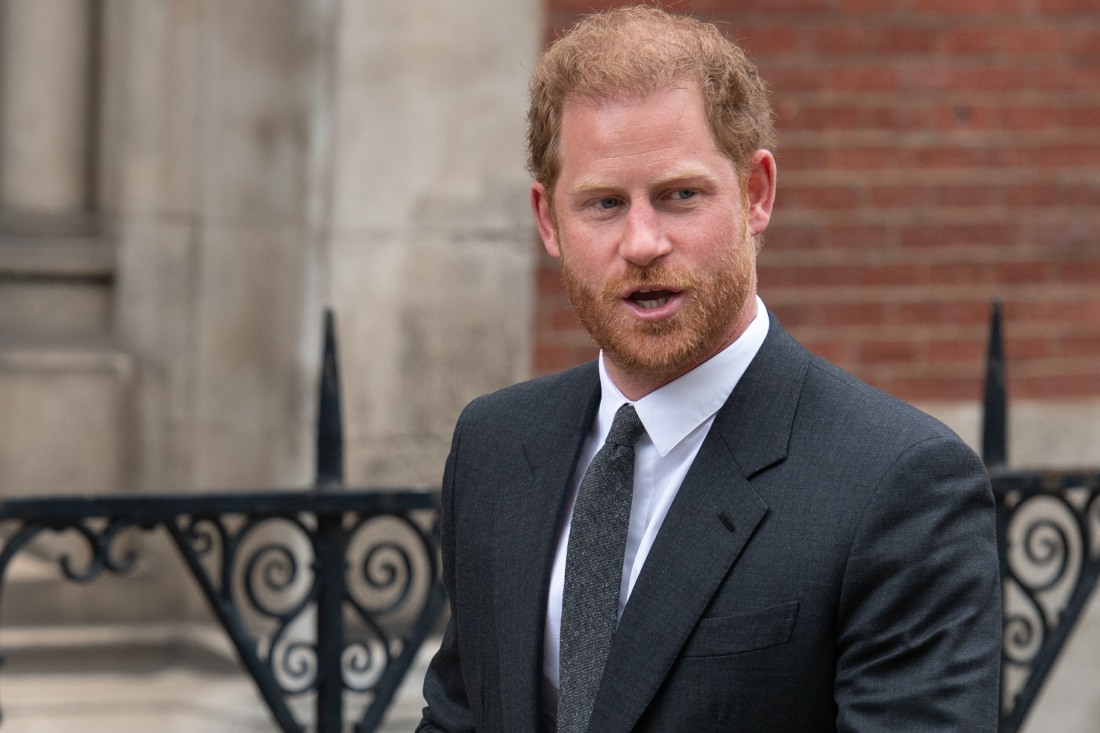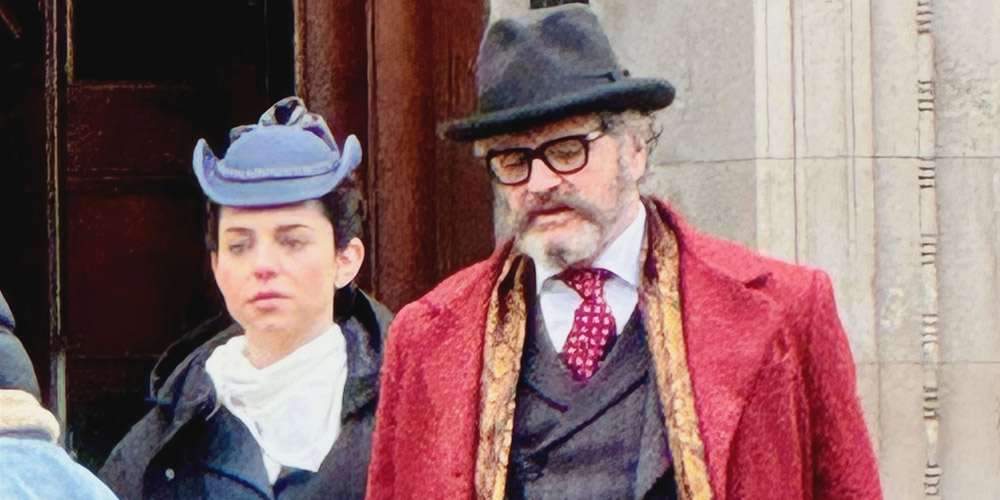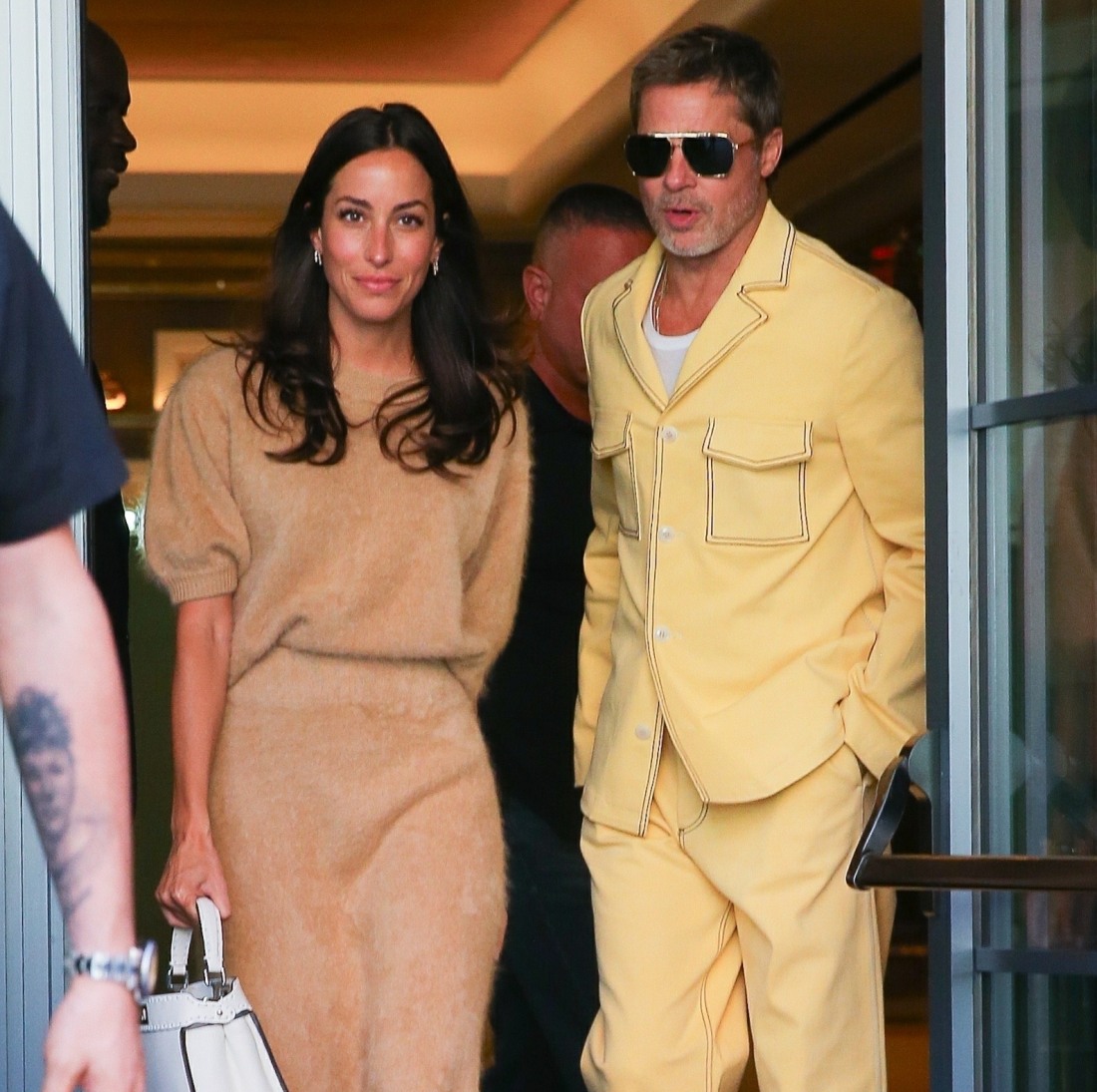ARTICLE AD
The Berlin Film Festival officially kicked off this evening with an eventful opening ceremony at the Berlinale Palast theatre in the German capital.
After a divisive build-up to the fest, the opening ceremony was, in contrast, a relatively conventional affair. High-profile attendees included veteran German filmmakers Wim Wenders and Fatih Akin, Phantom Thread actress Vicky Krieps, and international jury president Lupita Nyong’o alongside her fellow jury members, Brady Corbet, Ann Hui, Christian Petzold, Albert Serra, Jasmine Trinca, and Oksana Zabuzhko.
The evening’s opening film was Small Things Like These, starring Cillian Murphy, who was in attendance with producer Matt Damon and co-star Emily Watson. Directed by Tim Mielants (Peaky Blinders), Small Things Like These is the first Irish film to open the Berlinale. Before the pic opened, the crowd inside the Palast theatre was welcomed by hosts Hadnet Tesfai and Jo Schück, who began their introductions with a series of remarks addressing what they later described as the “elephant in the room:” politics.
“When thousands have died, and there’s been so much violence in the Middle East since the 7th of October, what do we want a film festival to do? What do we want it to be,” Tesfai asked in her opening remarks. “Of course, this has an impact on us as humans, and of course, it has an impact on institutions like Berlinale. So, we cannot afford to pretend this is none of our business. Because it 100% is.”
Tesfai’s monologue was met with rapturous applause from the audience members inside the theater. Shortly after, the two hosts were joined on stage by Berlinale co-heads Carlo Chatrian and Mariette Rissenbeek, who teased this year’s festival competition before also turning their attention to the politics of recent weeks.
“The Berlinale has a lot of space for dialogue between people and art. But it has no space for hatred. Hatred is not on our guest list and won’t be invited,” Rissenbeek said in direct reference to the festival’s decision to disinvite members of the far-right Alternative for Germany (AfD) political party to this year’s opening ceremony.
“We are opposed to all forms of discrimination whether it’s anti-semitism or Islamaphobia,” Rissenbeek continued. “Many people in the Berlinale team are affected by the right-wing AfD and their intentions to deport people with a migrant background from the country. They want to throw them out, and that is something we can’t and will not tolerate as a festival.”
Rissenbeek’s condemnation of the AfD was echoed by German Culture Minister Claudia Roth, who followed the co-heads on stage with a speech during which she said German democracy is currently “under attack” from far-right actors.
“They want to fragment and destroy our republic. Our peaceful democracy. They want hate and hatred,” Roth said. “But in the face of that racism and hatred, we assert the beauty of difference, respect, and courage. Empathy and humanity is our response to counter their hatred and racism.”
The political energy inside the Palast was matched by the displays on the festival red carpet earlier in the evening. The carpet procession came to a brief pause early on as the festival hosted what it described as a “Filmmakers for Democracy, Diversity, and Peaceful Togetherness” demonstration. The festival organized the demonstration, which it said featured between 50 and 60 filmmakers, including names like Jonathan Berlin, Meret Becker, Luisa Gaffron, Pegah Ferydoni, and Roshanak Khodabakhsh. The filmmakers held up flashlights from their phones as the words “Defend. Democracy” appeared on a large screen behind the red carpet. The participants then proceeded to chant “Democracy, defend.” The demonstration was mostly met with cheers from the surrounding crowds, but there were also a few boos. After a few moments, the demonstration ended and the carpet procession continued.
Later during the carpet, a series of attendees used their time in front of the media pens to display their own political messages. American filmmaker Eliza Hittman, last at Berlin with her Silver Bear-winning Never Rarely Sometimes Always, had “ceasefire now” stitched onto the back of her dress. The message was a reference to the current global grassroots campaign calling for political action to end the current Israeli attacks in Gaza.

Pulling on local political tensions, German actress Pheline Roggan pulled up to the carpet donning a “FCK AfD” necklace while model Papis Loveday joined her holding a large placard that read “No Racism, No AfD.”

Outside the festival boundaries, a counter-protest was held by Hack!, a progressive collective of artists. The group congregated opposite the carpet procession holding a sign that read “No seats for fascists anywhere. Neither in culture nor in the senate,” another reference to the AfD.
“The presence of representatives of right-wing parties such as the AfD at cultural and public events contributes to the normalization and trivialization of anti-democratic tendencies,” the group said in an accompanying statement. “These growing forces not only pose a threat to the lives of all those who do not fit into their world view but also threaten the diversity and plurality of our cultural landscape. HACK! shows solidarity with the ones who have spoken up and aims to amplify their voices.”

After similar interventions from local bureaucrats inside the Palast, the hosts introduced Nyong’o and the festival’s jury, who also appeared to be in a reflective mood.
“I’ve learned that I’m the first Black [jury] president,” Nyong’o said addressing the Berlinale crowd.
“While I’m more than my race, I am very proud, humbled, and honored to break that barrier. And at a time right now when there’s so much divisiveness and with progression comes regression, I’m really proud to be a symbol of progress.”
Nyong’o received a hearty applause from the Berlin crowd and the hosts concluded the evening’s formalities, opening the festival and introducing the opening title Small Things Like These. The pic, and is adapted by Enda Walsh (Hunger, Disco Pigs) from Claire Keegan’s acclaimed Booker Prize-shortlisted novel, follows a devoted family man who discovers the local convent is, in fact, a cruel institution that takes in so-called “fallen girls and women.” This revelation forces him to confront some hard truths about the convent, his hometown — and his own life.
The Berlin Film Festival runs February 15 — 25.

.png) 9 months ago
48
9 months ago
48 

